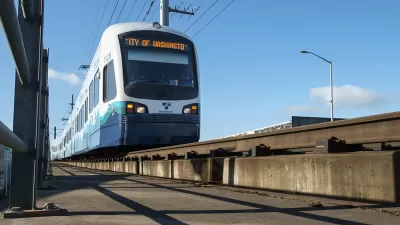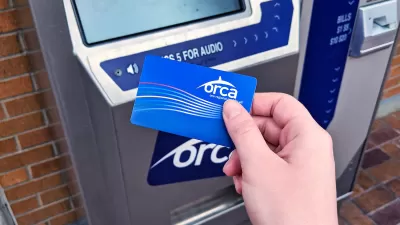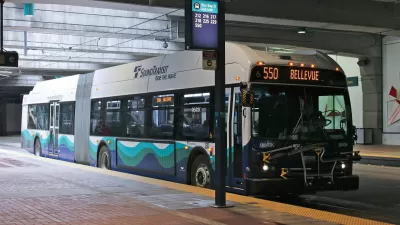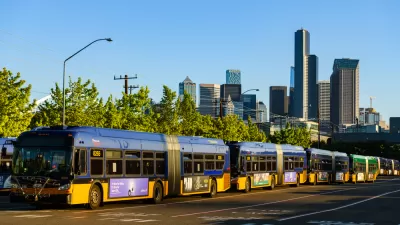Sound Transit says its fare enforcement system is design to be unbiased, but analysis about fare evader data indicates disparities.

Heidi Groover reports that data from Sound Transit in the Seattle area show that black riders are disproportionately caught in the fare enforcement system. While blacks make up 9 percent of riders on light rail and commuter rail trains, 22 percent of riders who were warned or penalized since 2015 were black.
"For black riders, the disparity grows as the punishment gets more severe, from warnings to $124 tickets to misdemeanor theft charges. In the last four years, about half the riders who faced a misdemeanor charge for failing to pay a fare were black," notes Groover.
Approximately a third of Sound Transit’s rail operating revenue comes from fares, and fare evasion affects the agency's bottom line, says Groover. Critics argue the findings show that fare enforcement measures are problematic and affect those riders least able to pay fines. Still, officials say the reasons behind the disparity and people not paying fares are not entirely clear, and the agency plans to conduct surveys later this year to gain more insight.
FULL STORY: Black passengers cited, punished disproportionately by Sound Transit fare enforcement

Maui's Vacation Rental Debate Turns Ugly
Verbal attacks, misinformation campaigns and fistfights plague a high-stakes debate to convert thousands of vacation rentals into long-term housing.

Planetizen Federal Action Tracker
A weekly monitor of how Trump’s orders and actions are impacting planners and planning in America.

In Urban Planning, AI Prompting Could be the New Design Thinking
Creativity has long been key to great urban design. What if we see AI as our new creative partner?

King County Supportive Housing Program Offers Hope for Unhoused Residents
The county is taking a ‘Housing First’ approach that prioritizes getting people into housing, then offering wraparound supportive services.

Researchers Use AI to Get Clearer Picture of US Housing
Analysts are using artificial intelligence to supercharge their research by allowing them to comb through data faster. Though these AI tools can be error prone, they save time and housing researchers are optimistic about the future.

Making Shared Micromobility More Inclusive
Cities and shared mobility system operators can do more to include people with disabilities in planning and operations, per a new report.
Urban Design for Planners 1: Software Tools
This six-course series explores essential urban design concepts using open source software and equips planners with the tools they need to participate fully in the urban design process.
Planning for Universal Design
Learn the tools for implementing Universal Design in planning regulations.
planning NEXT
Appalachian Highlands Housing Partners
Mpact (founded as Rail~Volution)
City of Camden Redevelopment Agency
City of Astoria
City of Portland
City of Laramie





























